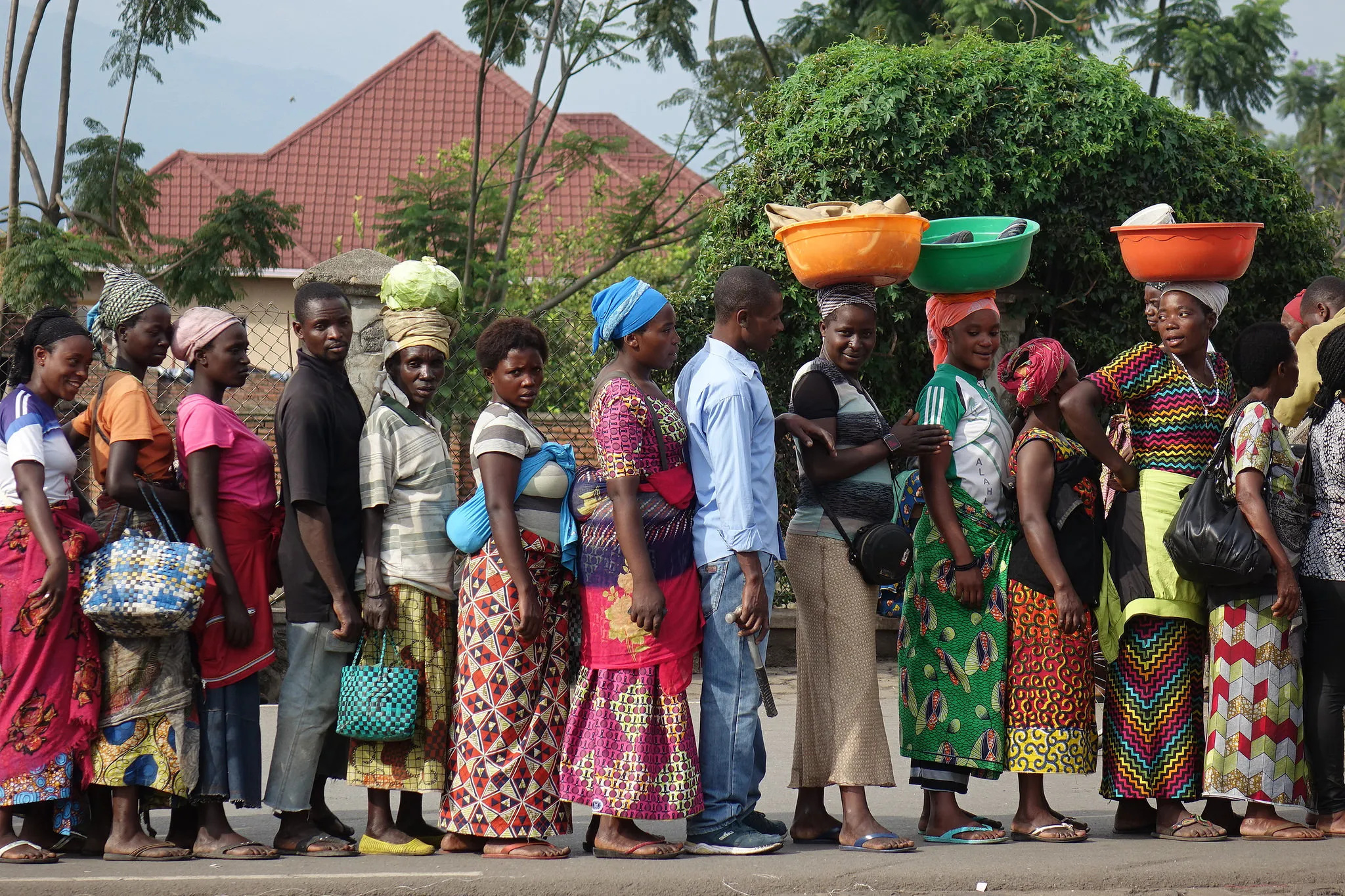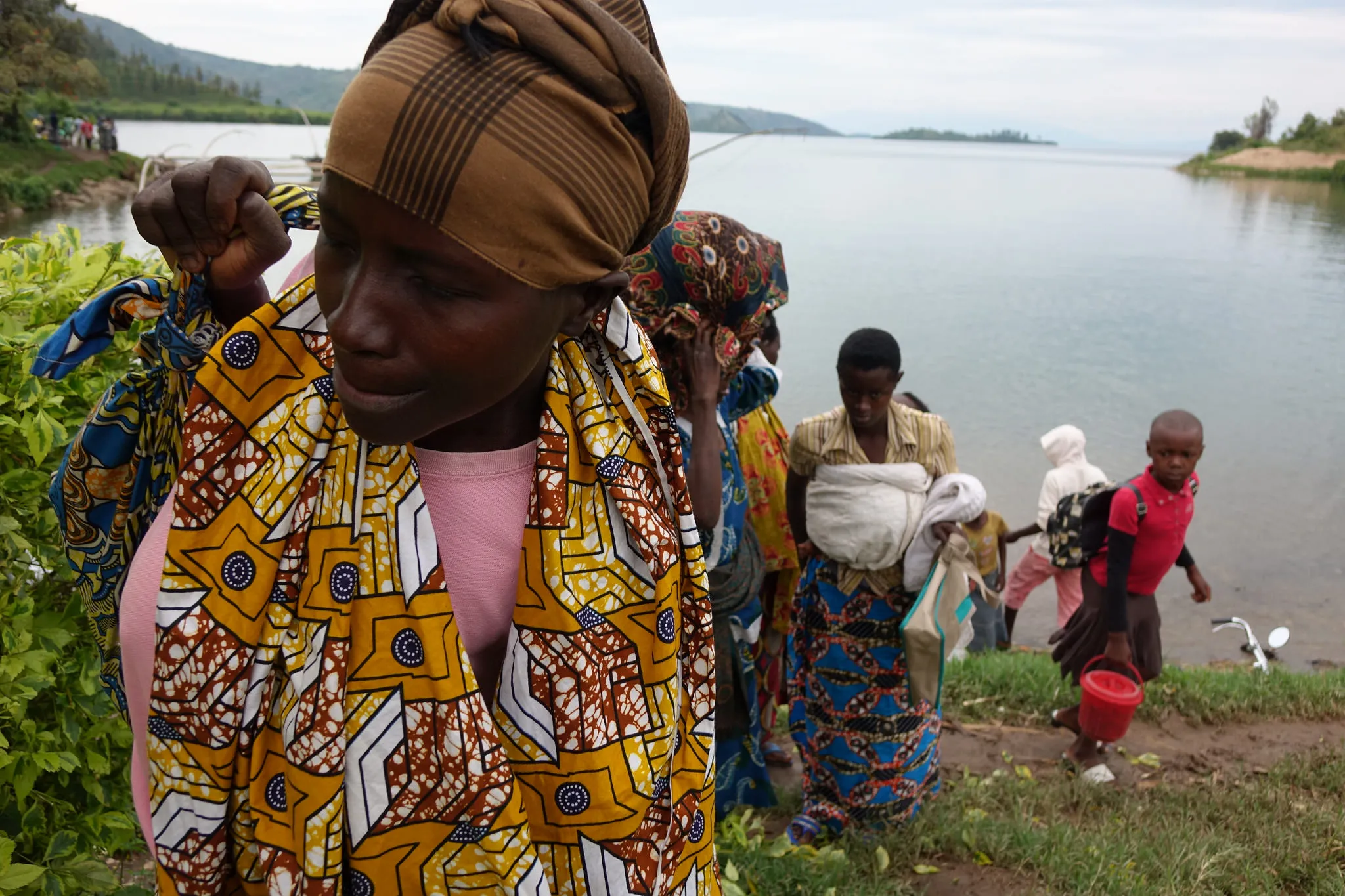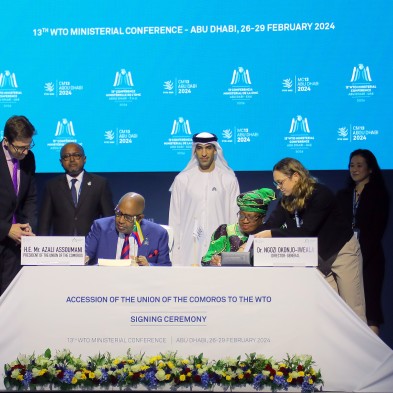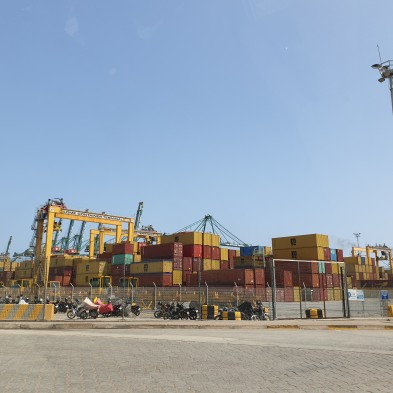
EIF worked with the Government of Rwanda to ensure trade priorities were integrated in the country's Economic Development and Poverty Reduction Strategy 2013-2018. With EIF support, the Ministry of Trade and Industry now has a unit that ensures synergies and sustainability for externally funded partnerships, and that coordinates donor‑funded efforts related to Aid for Trade and investment.
Along with development partners, EIF is working with the Government to implement targeted strategic support with strong emphasis on women's economic empowerment in cross-border trade, and EIF's work in the country has spurred tens of millions of dollars in additional investments by partners.


Trade Institutional Development: The EIF has worked at enabling one unit to effectively steer the in-country EIF process and increase ownership of trade related technical assistance. The most recent efforts were focused on sustaining trade interventions, including through connectivity to global trade markets, an increased export base, improved donor coordination and increased resource mobilization for a self-reliant economy. Ongoing efforts are supporting the implementation of the African Continental Free Trade Area Agreement (AfCFTA), in particular through the Sector Working Group consultative mechanism. The EU co-chairs the PSD and Youth Employment Group as part of this mechanism with the PS from MINICOM and the Head of EU Development Cooperation recently praised the Government's approach and highly valued the EIF contribution.
Trade Facilitation: The EIF has worked to improve Rwanda's cross-border business environment by addressing institutional mechanisms, trade-related capacities and trade infrastructure with the aim to improve the earning potential of those engaged in cross‑border trade in Rwanda, of which 74% are women. Cross border markets have been constructed in Cyanika and Karongi with EIF support. Harmonized data collection systems with those of the National Bank of Rwanda now ensure that accurate trade data is collected and can be used for future planning. 708 cooperative members have also been trained.
E-Commerce: The EIF supported e-commerce project has continued to support new e-payment methods and a stronger coordination amongst key players. A growing number of merchants have now joined e-commerce platforms and MSMEs upgraded their e-payment skills and were profiled across TV channels to showcase ‘Made in Rwanda’ products. In addition, targeted cashless campaigns with suppliers and traders are reaching farmers in agricultural value chains.
Productive sector capacity building – Export growth initiatives: The Rwanda export growth initiative project has facilitated supplier development and market linkages to boost value added sectors including manufacturing, agro-processing and services.
With the seeds sown through the national e-waste policy, to the development of which the EIF provided initial support, Rwanda has now established a public-private partnership state-of-the-art e-waste dismantling and recycling facility.
EIF has worked at enabling one unit to effectively steer the in-country EIF process and increase ownership of trade‑related technical assistance. Current effort is focusing on sustaining trade interventions, including through connectivity to global trade markets, increased export base, improved donor coordination and increased resource mobilization leading to a self-reliant economy.
Results:
- Updated National Export Strategy implementation plans for key export clusters (coffee, tea, mining, horticulture, construction materials, handicrafts, tourism, ICT).
- Trained 30 staff from the Ministry of Trade and Industry in e‑waste management, consumer protection techniques, project management, trade negotiations and IT.
- Supported 54 artisan exporters to attend regional trade fairs, and supported 5 exporters to attend international trade fairs in the USA.
- SOPYRWA, a local company that works with chrysanthemums, received financial support to access markets in Europe and America and, as a results, two major contracts were signed.
EIF is working to improve Rwanda's cross-border business environment by addressing institutional mechanisms, trade-related capacities and trade infrastructure with the aim to improve the earning potential of those engaged in cross‑border trade in Rwanda, of which 74% are women.
Results:
- Established cross‑border trade coordination unit with six field staff.
- Constructing cross‑border markets in Cyanika and Karongi.
- Harmonized data collection systems with those of the National Bank of Rwanda to ensure that accurate trade data is collected and can be used for future planning.
- Trained 708 cooperative members.



